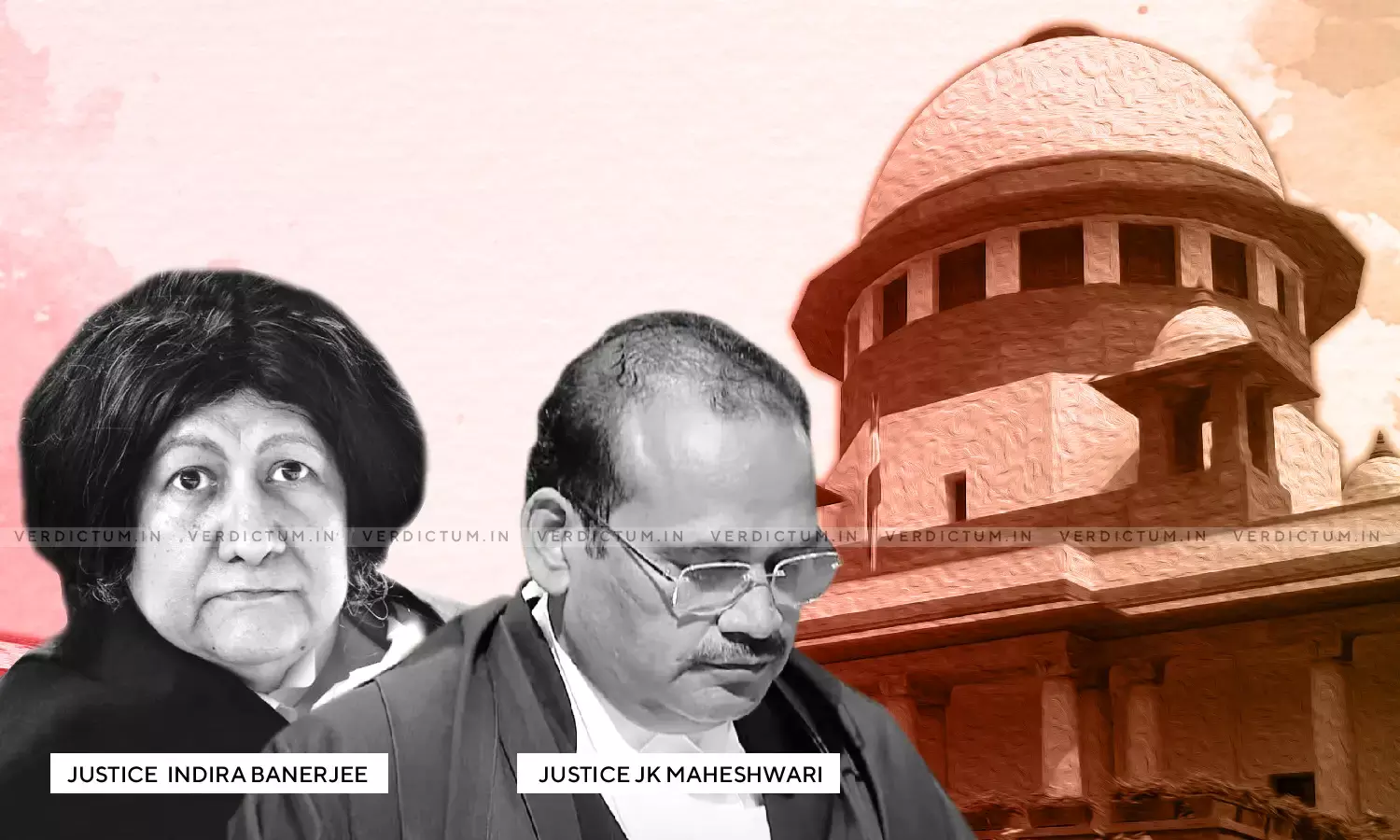Environment Protection Act Does Not Prohibit For Grant For Ex Post Facto EC In Special Circumstances - Supreme Court

The Supreme Court bench comprising of Justice Indira Banerjee and Justice J. K. Maheshwari recently allowed an appeal against the order passed by the Principal Bench of the National Green Tribunal which held that establishments like the manufacturing units of M/s Pahwa Plastics Pvt. Ltd. which did not have prior Environmental Clearance could not be allowed to operate.
The issue which was dealt with by the Court was -
Whether an establishment employing about 8000 workers, which has been set up pursuant to Consent to Establish (CTE) and Consent to Operate (CTO) from the concerned statutory authority and has applied for ex post facto EC can be closed down pending issuance of EC, even though it may not cause pollution and/or may be found to comply with the required pollution norms.
The Appellant before the Supreme Court M/s Pahwa Plastics Pvt. Ltd. and M/s Apcolite Polymer Private Limited carried on a business of manufacture and sale of Formaldehyde chemicals and had two manufacturing units in Rohtak and Yamuna Nagar which fell into the category of MSME.
The Appellant had applied for the Consent to Establish (CTE) for its Yamuna Nagar Unit which was granted by Haryana State Pollution Control Board (HSPCB) to remain valid for a period of 60 months and could be extended for another year at the discretion of the Board or till the time the unit started its trial production, whichever was earlier.
HSPCB also granted them CTO for its Yamuna Nagar Unit from 8th February 2018 to 31st March 2022. M/s Apcolite Polymer Private Limited was granted CTE to establish its Yamuna Nagar Unit for the manufacture of Formaldehyde with a manufacturing capacity of 80 tonnes per day. HSPCB was also granted CTO to M/s Apcolite Polymers Private Limited for its Yamuna Nagar Unit which was extended till March 2026. The HSPCB had also granted consent for the emission of AIR to M/s Apcolite Polymers Private Limited in respect of its Yamuna Nagar Unit with certain terms and conditions.
After scrutinizing the applications of the Appellants and after finding the units suitable for grant of EC in terms of the prevailing guidelines, the Expert Appraisal Committee constituted by the MoEF & CC conducted a public hearing to finalize the cases of the Appellants for issuance of Terms of Reference. In the meanwhile, an NGO named Dastak filed an application before the NGT praying that the order dated 10th November 2020 passed by the State of Haryana be quashed and units that were operating without EC be closed. The NGT disposed of the said application of Dastak by the impugned order dated 3rd June 2021.
The Supreme Court observed that "It is, however, well settled that words and phrases and/or sentences in a judgment cannot be read in the manner of a statute, and that too out of context. The observation of the Division Bench that a one-time relaxation was permissible, is not to be construed as a finding that relaxation cannot be made more than once." It was also observed by the court that, "The 1986 Act does not prohibit ex post facto Environmental Clearance. Grant of ex post facto EC in accordance with law, in strict compliance with Rules, Regulations, Notifications and/or applicable orders, in appropriate cases, where the projects are in compliance with, or can be made to comply with environment norms, is in our view not impermissible. The Court cannot be oblivious to the economy or the need to protect the livelihood of hundreds of employees and others employed in the project and others dependent on the project, if such projects comply with environmental norms."
"It is reiterated that the 1986 Act does not prohibit ex post facto EC. Some relaxations and even grant of ex post facto EC in accordance with law, in strict compliance with Rules, Regulations, Notifications and/or applicable orders, in appropriate cases, where the projects are in compliance with environment norms, is not impermissible," the Bench opined.
The Court while allowing the appeal and setting aside the order of the NGT also held that "Ex post facto EC should not ordinarily be granted, and certainly not for the asking. At the same time ex post facto clearances and/or approvals cannot be declined with pedantic rigidity, regardless of the consequences of stopping the operations. This Court is of the view that the NGT erred in law in directing that the units cannot be allowed to function till compliance of the statutory mandate."
Click here to read/download the Judgment

